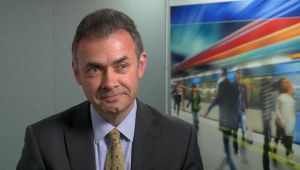Key takeaways:
- We must be ready to adapt to meet future challenges
- Continued automation will determine which skills are desirable to employers
- The form and structure of careers in the future won’t be the same as in the past
- Organisations, governments and individuals all have a part to play in preparing for change
What major changes does the working world face?
We can expect to see further automation of non-routine tasks as artificial intelligence comes to assume an increasingly significant role in our lives. Interaction among people, governments and companies is likely to grow, leading to greater integration between local and national economies. This, combined with the freer movement of people, will allow knowledge to disseminate further and faster.
Who is the accountant of the future?
A report from the Organisation for Economic Cooperation and Development (OECD), Future of Work and Skills (2017), highlights that ongoing automation will shift the emphasis onto those tasks that cannot be automated, meaning that ‘soft skills’, for instance, the ability to communicate or work in teams, will be crucial to employers.
What we have learned and already know will become less important than our ability to adapt and learn new skills. In his book Deep Work, Cal Newport, a computer science professor at Georgetown University, stresses that in order to make a valuable contribution in the workplace employees must “master the art of quickly learning complicated things.”
Elsewhere, in its report What Does a Future-Ready PAO Look Like? (2018), the International Federation of Accountants’ (IFAC) Professional Accountancy Organisation (POA) Development Committee painted a colourful picture of the accountant of the future:
[They] have a global outlook and develop their expertise through technology and virtual learning tools and are recognised for their strategic outlook and advisory skills. Not simply a number cruncher, they have a sense of purpose and care deeply about their impact on the world. They are a central part of the business, known for creative and critical thinking.
How will the work environment change?
Preparing for the future is necessary, but shouldn’t take the form of ‘betting the farm’ on one particular scenario or possible future state: there are multiple possibilities that we must consider. In its report, Workforce of the Future: The Competing Forces Shaping 2030 (2018), PwC envisioned four possible scenarios for the future world of work:
- Innovation rules:
- organisations consist of a small number of ‘pivotal people’ with outstanding management skills who command high rewards
- innovation creates a high-risk environment where regulation struggles to keep up, but when it does “it impacts unevenly and suddenly”
- the commercial value of learning becomes vital – university degrees are less valuable than specific skills or experience.
- Corporate is king:
- corporations become very large to the extent that some of them become more powerful than nation states
- companies offer many services previously provided by the state, eg children’s education, healthcare
- there is relentless pressure on employees to perform.
- Companies care:
- employees enjoy family friendly working conditions
- employers and employees have high ethical standards
- performance at work is assessed against a wide ranging set of criteria, including how efficiently workers manage their resources.
- Humans come first:
- a creative market with strong emphasis on ethics and fairness
- a new breed of guilds emerges to protect, support and connect independent workers
- individuals come together to collaborate on projects and then break apart
- the border between work time and home time is blurred.
How can we be proactive in meeting future challenges?
By thinking about what might happen we give ourselves the opportunity to work out contingency plans and chart a broad direction of travel for our future career development. As an individual you can be proactive in adapting to change by, for example, strengthening and expanding your soft skillset.
But most importantly, employing organisations and governments need to be willing to equip young people with relevant skills for the workplace of the future and provide retraining for older workers whose jobs change or disappear. PwC summarises the issue as follows:
Organisations can’t protect jobs which are made redundant by technology – but they do have a responsibility to their people. Protect people not jobs. Nurture agility, adaptability and re-skilling.
Questions for you
- Could any of the tasks that you perform at work become automated in the future?
- Which skills do you consistently demonstrate in your current role that would be difficult to automate?
- Excluding those discussed in this article, can you think of any ways in which you could prepare yourself for the future?
Further information
Workforce of the Future: The Competing Forces Shaping 2030 (PwC, 2018)
The 3 Key Skill Sets for the Workers of 2030 (World Economic Forum, 2018)
What Does a Future-Ready PAO Look Like? (IFAC, 2018)
Future of Work and Skills (OECD, 2017)
Cal Newport, Deep Work (Piatkus, 2016)













